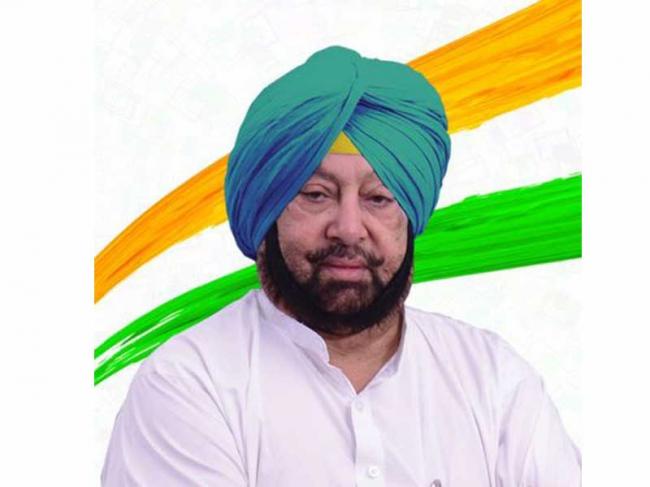
Sacrilege law: Punjab's "aping of Pakistan" invites condemnation
Chandigarh, Aug 23 (IBNS): Punjab Chief Minister Amarinder Singh may have other ideas about the sacrilege law, which has been passed unanimously by his cabinet, but to critics, it's another way to suppress free speech, similar to Pakistan's condemnable blasphemy laws.
On Tuesday, Singh took to Twitter to announce that his cabinet decided to pass a law and make sacrilege of all religious texts punishable with life imprisonment, trigger a hot debate on his post.
"The Cabinet today decided on amendments to IPC to make sacrilege of all religious texts punishable with life imprisonment. We will place the Bill in the Vidhan Sabha for approval. I stand firmly committed to preserve communal harmony in the State," Singh tweeted.
The Cabinet today decided on amendments to IPC to make sacrilege of all religious texts punishable with life imprisonment. We will place the Bill in the Vidhan Sabha for approval. I stand firmly committed to preserve communal harmony in the State. pic.twitter.com/0Bm8150IH1
— Capt.Amarinder Singh (@capt_amarinder) August 21, 2018
While some users demanded that his government come clean with what it thinks is sacrilege, others urged him to not blindly copy laws from Pakistan, which reek of suppressing free speech and human rights.
Sasidharan Pazhoor, a fellow Twitter user asked: "Could you please define 'sacrilege' for us, captain?"
Yedei, another user said: "First of all they have to define what constitutes a religious text. Will @dinkoism tweets and comics be considered religious? What if I write something and proclaim it to be religious? Where does this stupidity end?"
A third user, V P Singh urged him to reconsider the law.
"Sir, Please don't make us another Pakistan. It seems to be copied from much maligned & misused Blasphemy Law of Pakistan. Kindly shelve it, present IPC is enough," the user tweeted.
Author Sankrant Sanu has asked the Punjab Chief Minister how the new law was any different from Sharia law.
"How is this different from enactment of Sharia blasphemy laws? And why privilege religious texts, if you want to go there? Why not traditional practices?" he said.
In Pakistan, blasphemy is a serious issue and can cost someone's life.
Almost seven and a half years ago, then Pakistan's Punjab province governor, Salman Taseer was gunned down by fundamentalist for defending a Christian woman who was condemned to death under the blasphemy laws of the country.
A similar fate was shared by religious minorities minister Shahbaz Bhatti, who was shot dead a month later for speaking out against the law.
While Pakistan is prone to such incidents, with a law to safeguard the ones committing transgressions, an introduction of a similar law in an Indian state is highly undesired, to say the least.
Pointing out the double standards portrayed by the Congress, which claims to be a secular party, DailyO assistant editor Vandana wrote in her piece: "Blasphemy laws are a dangerous tool that is almost always used against the marginalised and defenceless. It is a serious infringement on the people's freedom of speech."
"That this law is being pushed for in a Congress-ruled state once again brings to the fore the party's duplicitousness in using religion to strengthen its hold over power. The irony of the situation grows even more stark when you recall Congress leader Shashi Tharoor's recent warning against Indian society providing a 'Hindu Taliban', the Taliban, among other groups, known to be very keen on blasphemy laws and cruel punishments."
Support Our Journalism
We cannot do without you.. your contribution supports unbiased journalism
IBNS is not driven by any ism- not wokeism, not racism, not skewed secularism, not hyper right-wing or left liberal ideals, nor by any hardline religious beliefs or hyper nationalism. We want to serve you good old objective news, as they are. We do not judge or preach. We let people decide for themselves. We only try to present factual and well-sourced news.







